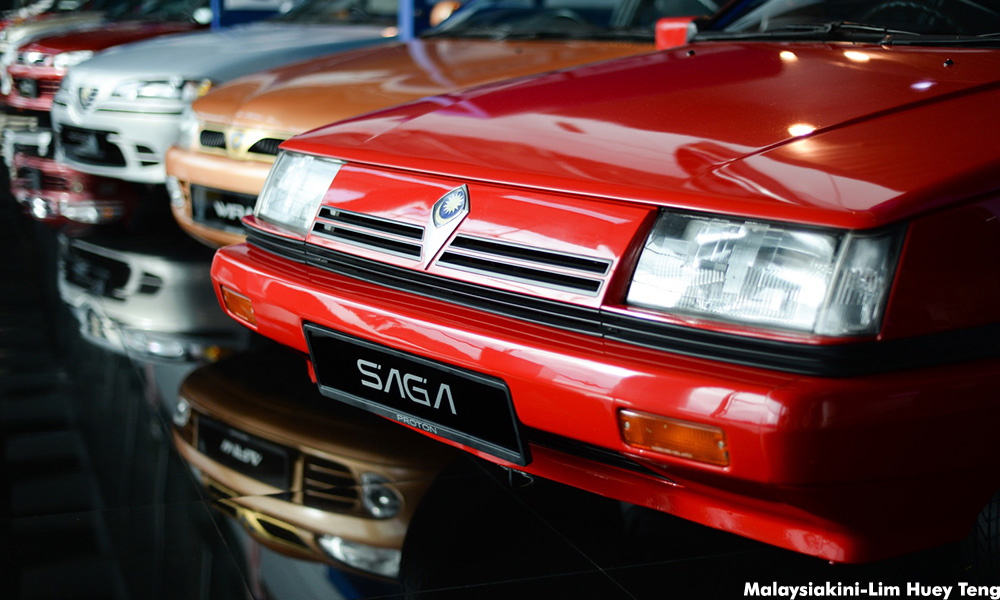LETTER | I refer to the report in which former prime minister Dr Mahathir Mohamad laughed off current premier Najib Razak's allegations that public transportation was neglected during the former's tenure.
Mahathir's implication is that Proton was doing well financially at least before his retirement in 2003.
But I have my reservations on this. Setting up heavy industries and having our own national car project could have been a good strategic idea. However, it is the execution aspects that we must look at.
Mahathir has always had great ideas. From challenging established orders, setting up Sogoshosha, initiating privatisation, building the twin-towers to creating Cyberjaya and Putrajaya, he did it all.
But as the saying goes, the proof of the pudding is in the eating. Great ideas need coherent and well thought-out execution.
Most Malaysians were supportive of Proton, but it was the unfettered and timeless protection and shielding from competition that annoyed most people.
We accepted the “infant industry” argument for Proton to build up the capacity to compete, but it has been more than 30 years with no sign of Proton yet to be able to stand on its own feet to compete.

It is true Proton made lots of money, but it was out of “defined market” and at the expense of Malaysians having to buy cars at exorbitant prices.
Great ideas with poor execution will come to nothing. The Koreans started the car industry at around the same time as Malaysia. They, too, had started with protection, but look at Korea today. They used the protection to build up the capacity to compete; we use the protection for the enjoyment of some vested interest groups.
We create a protected auto market that not only helped Proton but also a few AP car importers to become billionaires. I can understand how public policies should be used to help the poor. But quite frankly, I cannot understand why public policies should be used to help someone to become a billionaire.
The same goes with the privatisation of highways, the supply of potable water and power generation. It is a good idea to leverage the efficiency and effectiveness of the private sector, but all “natural monopolies” must have proper regulations post-privatisation. All privatisation agreements must be properly scrutinised to avoid abuse, cronyism and profiteering.
Sometimes I wonder why it is so difficult for us to understand this simple rule of privatisation unless “the powers that be” are also a beneficiary of any lopsided privatisation agreement.
Mahathir must learn to accept legitimate criticisms. It is not enough for him to say Proton was making money or that the toll in Japan is much higher than Malaysia's.
With him out of power now, he must do more to understand the downside and the unintended consequences of his policies and programmes.
People are yearning for better governance but it is not any cost. Mahathir and Pakatan Harapan must be consistent, coherent and logical in their articulations. As a package deal, Mahathir is not bad but he certainly needs refinements.
The views expressed here are those of the author/contributor and do not necessarily represent the views of Malaysiakini.

